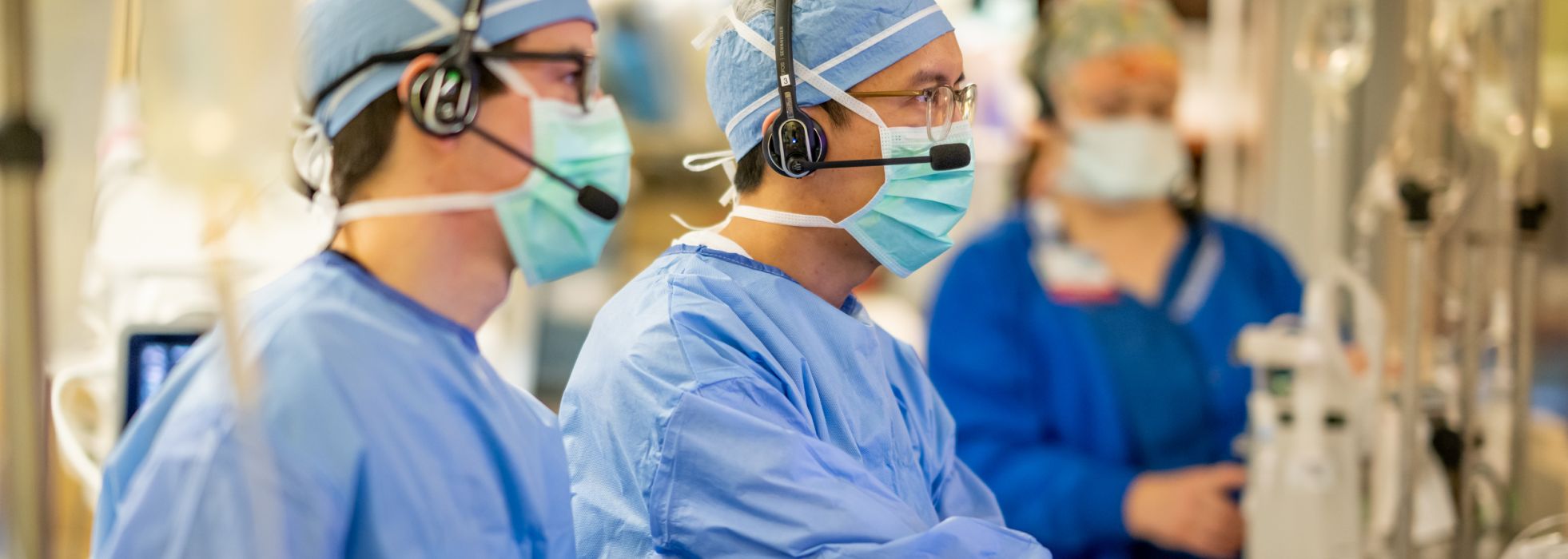Customized Training for the Career You Want
Broaden your clinical experience across multiple unique patient populations: the tertiary referral and academic center of University Hospitals and Clinics; the adjacent William S. Middleton Memorial Veteran’s Hospital; and the UnityPoint Health-Meriter community hospital.
Gain the knowledge and skills to provide exceptional electrophysiology services in the procedural lab and consultative care, as well as the interpretation and medical management of arrhythmias.
Didactic Experiences
Fellows will attend, and sometimes present at:
- CCEP core curriculum, CME sponsored, weekly
- Includes Journal Club, EP M&M, and EP Research meetings
- Includes dedicated EGM interpretation sessions
- EP operations meetings
- CVM Grand Rounds and other Division of Cardiovascular Medicine conferences
Clinical Experiences
Training occurs within a full-service EP program. Procedures include:
- Advanced ablation techniques
- Trans-septal catheterization
- CIED implantation
- Novel techniques, such as laser lead extraction and leadless pacing systems
- Integration of knowledge related to 3-D mapping and supporting modalities
Procedural skills
Fellows spend 12 months each year in the electrophysiology procedural suites at University Hospital and Clinics, the adjacent William S. Middleton Memorial Veteran’s Hospital and the UnityPoint Health-Meriter community hospital..
Consultation skills
- Approximately one in every six weeks, develop consultative skills by leading the team on the dedicated EP consult service at University Hospital
- Attend a weekly half-day outpatient clinic with clinic mentors, rotating every six months to broaden your experience. Spend at least one six-month block with a non-invasive EP faculty member to sharpen your skills in medical arrhythmia management and study interpretation.
- Rotate on Home Call on a schedule of alternating weeks, providing EP consultative services until 10PM on weekdays, and covering call from 8AM-2PM one weekend each month.
Scholarly Activity
Research
Our division is home to robust research on heart failure, arrhythmias, vascular biology and imaging. It's part of our department's rich research environment and a vibrant campus community of inquiry.
You are required to participate in some form of scholarly activity, and we encourage you to tailor this to align with your interests and skills. Faculty mentors will help you identify an area of interest and a suitable faculty mentor during your first year.
When funding allows, select fellows may also advance research interests and experience by adding on a T32 post-grad research year to the fellowship.
Teaching
The Department of Medicine's Fellow Medical Education (FAME) Training Track trains fellows to become effective clinician-teachers and scholars.
Additional Opportunities in the Department
- QI Curriculum for Fellowship. Teaches fellows how to apply quality improvement knowledge and skills directly to clinical practice.
- Women in Leadership and Development (WILD). Trainee-led program that provides women fellows with a toolkit for career advancement and skills to negate systemic gender bias and inequities in academic medicine.
